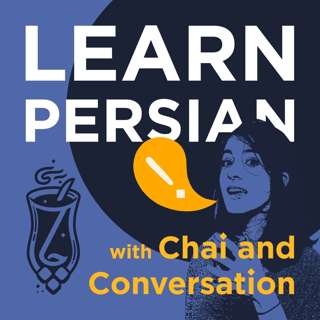
Speak Lesson 54 | Common Persian Sayings and Expressions
In this lesson, we learn common Persian sayings that often don't make sense in English. Expressions, idioms- these are what make a language unique! We also learn some common Persian insults.
20 Apr 201611min

Speak Lesson 53 | Respect in the Persian Culture
Respect is a big deal in Persian culture- respect for your family, respect for elders, among other things. We've learned about tārof- but this type of etiquette is just one aspect of showing respect for others. In this lesson, we learn other ways respect is demonstrated in the Persian culture.
23 Mars 201611min

Speak Lesson 52 | Navigating 'Tā'arof' in Different Social Situations
In this lesson, we continue our discussion of the Persian concept of 'tārof'- we learn different situation in which 'tārof' comes into play, and how to successfully navigate through these situations. These situations include being paid a compliment, making a financial transaction at a store, interacting with guests and hosts, and much more.
9 Mars 201615min

Speak Lesson 51 | Introducing 'Ta'arof'
In this lesson, we talk about one of the most important concepts when it comes to learning about Persian culture- the concept of tārof. Tārof is basically the code of etiquette Iranians use in all social situations, and it's quite culturally pervasive. While western culture also has rules of engaging with others, Persians take it to a whole new level. For someone unfamiliar with the concept, sometimes the behavior of Iranians may seem a bit strange, but once these few simple rules are learned, a lot of cultural misunderstanding can be avoided. LINKS: We also explored this concept in our popular Youtube video, which you can see here.In addition, Leyla was interviewed for PRI's The World about the concept- check it out on their webpage.Or checkout her interview with the LA Times, where again she championed the cause.
24 Feb 201614min

Speak Lesson 50 | More about Daily Routines
In this lesson, we learn more about how to talk about daily routines, especially routines associated with waking up and going to bed.
27 Aug 201412min

Speak Lesson 49 | How to Talk About Daily Routines
In Lesson 49, we learn to talk about simple daily routines. These include things like eating breakfast, going to work, having meals, and resting.
26 Juni 201413min

Speak Lesson 48 | How To Discuss Travel
In this lesson, we learn the Persian words for different types of transportation, including airplanes, cars, bicycles, and motorcyles.
29 Maj 201411min

Speak Lesson 47 | How to Discuss Breakfast
In this lesson, we learn to talk about one of the most important parts of Persian culture- breakfast. We learn how to talk about breakfast- including a list of breakfast foods and important breakfast drinks.
12 Maj 201411min





















